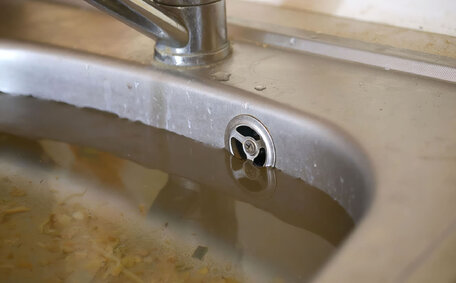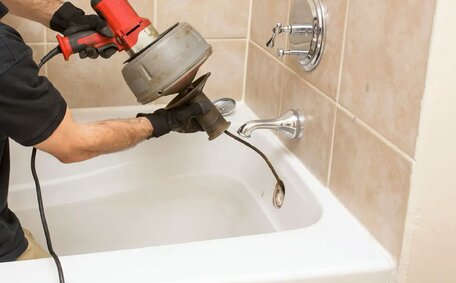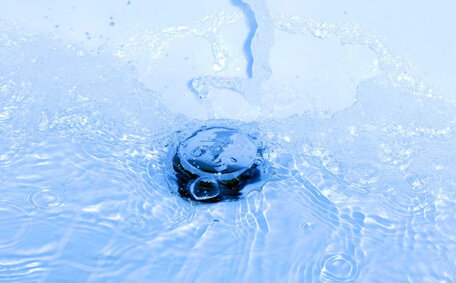Introduction to hot water system recycling
With rising energy expenses and growing environmental awareness, more Australians choose to recycle their old hot water systems when upgrading to a new one. At Hornsby Plumbing, I’m sure you recognise the benefits of properly disposing of gas hot heating units that have reached the end of their lifespan.
Electric, gas, solar, and heat pump models are among the hot water systems that can be recycled. Recycling responsibly diverts heating units from landfills, and selecting the best method requires understanding your options.
In this guide, we’ll explore recommendations for recycling various heating unit types. We’ll discuss scrapping components for metal, safety measures, and upgrading to more efficient systems.
Leveraging over ten years of plumbing and recycling expertise in Hornsby and Sydney, we aim to educate homeowners and offer customised solutions. Reach out to us with your details for comprehensive guidance on properly disposing and replacing outdated hot water systems.
Determining if your old system can be recycled
Several key factors influence your recycling options and determine if an outdated hot water system is eligible:
Age and condition
Standard water heaters typically last between 8-12 years before needing replacement and can often be recycled. Extremely old or deteriorated units have limited recycling value and may need to be scrapped instead. Inspect your old water system for significant corrosion, leaks or other functional issues.
Size requirements
Recycling centres and metal dealers often have size minimums for accepting hot water tanks, influencing how much can be recycled. Traditional 40-80 gallon residential units usually meet requirements, but in some areas, smaller under-sink or tankless heaters may not qualify. Measure your system and call local recycling companies to confirm eligibility, as some may be too small.
Removal process
Proper water heater disposal necessitates stringent safety procedures. Older units may contain asbestos, necessitating that you make sure to follow careful steps to break down and dispose your water heating systems.
We begin by draining the tank and then safely disconnecting any gas or electrical connections prior to removal. Our technicians are meticulous in containing and legally disposing of your heater, ensuring proper handling of any hazardous materials.
If your aged system meets size and condition requirements, Hornsby Plumbing can ensure your old heater can be responsibly recycled. We provide affordable upgrades to modern, energy-efficient models and guide you to your local recycling centre. Contact us for a free estimate or to learn more about your replacement options.
Understanding the components and metals
Standard units contain recyclable metals such as copper, including:
- Copper - Found in pipes, heat exchanger coils, and wiring. Fetching moderate scrap prices.
- Brass - Used for fittings, valves, drain plugs. Contains higher copper levels than bronze.
- Aluminium - Lightweight tanks often made of recyclable aluminium.
- Steel - Outer shells or internal components may contain recyclable steel.
- Insulation - Older units contained asbestos insulation. Requires hazardous materials disposal.
Appliance removal of old hot water systems includes components like thermostats, heating elements, and anode rods vital for longevity. Properly extracting metals requires draining the water supply completely and disassembly by qualified technicians.
We assess the metal composition and salvage value of your unit. Routine maintenance checks also assess when upgrades to modern systems may better suit your heater.
Contact our team to remove your old unit and consult on replacement options if your system shows deterioration. Reach us online or call 1300 349 338 to speak with our Hornsby hot water experts.
The water heater recycling process step-by-step
Recycling an outdated hot water system involves carefully following key steps:
Drain the tank - Switch off the water inlet and shut-off valve, and open the hot taps to drain the tank completely. Open the drain valve at the base of the tank to completely empty your hot water system.
Disconnect pipes & wires - Disconnect water, gas and electrical lines connecting to the unit. Cap open ends to contain residual water or gas.
Remove the unit - Detach the old heater from wall mounting brackets. Lightweight aluminium or plastic tanks can often be moved by two people.
Inspect condition - Note any leaks, corrosion, and part failures to assess salvage potential.
Contact recycling centres - Enquire about requirements and request quotes from local metal recycling firms and habitat restoration entities.
Transport for drop-off/pickup - Depending on policies, transport the drained unit to an approved recycling facility or arrange for junk removal.
Complete documentation - Get and retain receipts from the recycling centre, especially if scrapping components containing hazardous materials.
Install an upgraded model - Take the opportunity to upgrade your home with a new, energy-efficient hot water system.
Hornsby Plumbing oversees the entire process, from careful removal to responsible heater recycling, and offers modern replacements that align with your needs. Contact us at 1300 349 338 to learn more or schedule service.
Evaluating the scrap metal value
To figure out your old water system’s scrap metal value, identify which components have reusable metals. While the tank exterior is often aluminium or steel, internal parts like copper piping and brass fittings tend to have higher recycling worth.
Valuable System Components
When recycling hot water units, I use my expertise to inspect outdated systems, focusing on key metals with reasonable scrap prices:
- Copper pipes - Check pipe thickness to estimate weight and value.
- Brass valves and fittings - Contains more copper than bronze for higher scrap value.
- Copper heat exchanger coils - Found in tankless or instantaneous models.
- Aluminium tanks - Weigh empty units to approximate what recycling centres may offer.
Getting Accurate Scrap Value Quotes
While online resources suggest average prices for materials like copper and brass, your old heater’s actual scrap value depends on market trends and recycling centre policies. To recycle hot components responsibly, for accurate quotes:
- Catalogue exact weights and metal composition from your old unit.
- Contact multiple nearby metal recycling companies for comparative rates.
- Ask what forms of payment centres provide - cash, checks or accounts credit.
As licensed plumbing and metal recycling experts, Hornsby Plumbing ensures responsible heater disposal and works with local recyclers to maximise your scrap returns. Reach out today at 1300 349 338 to learn more.
Arranging professional removal and recycling
Attempting to remove a hot water system solo poses significant challenges and risks. At Hornsby Plumbing, we recommend contacting trained specialists to handle the entire recycling process.
Benefits of professional removal services
Hiring skilled technicians for your heater’s disposal guarantees professional waste management and added conveniences:
- Compliance with regulations for draining tanks, handling refrigerants or asbestos insulation.
- Availability of proper equipment for dismantling large systems.
- Safe containment and transportation of hazardous materials to approved recycling facilities.
- Maximum scrap value by extracting all valuable metals before recycling.
What Hornsby Plumbing provides
As established professionals in Sydney, we provide thorough installation services for new systems, backed by over ten years of experience:
- Convenient on-site evaluations of your system’s recycling potential.
- Complete removal and legal disposal/recycling services.
- Competitive scrap pricing through established industry contacts.
- Seamless installation of new energy-efficient systems.
Rely on Hornsby Plumbing to streamline the replacement of your old unit with our professional services and to maximise your returns from valuable scrap metals. Contact us at 1300 349 338 for affordable removal quotes backed by our satisfaction guarantee.
Alternatives: Donation, repurposing, upgrading
Apart from recycling, explore alternative disposal options for an older, yet operational, hot water system:
Donation
Charities and non-profit groups can use donated hot water heater units for disaster relief efforts or developing communities. Contact local organisations to see if they can utilise a working unit.
Repurposing
With some creativity, you can also repurpose your old water tank as a rainwater collector, storage for livestock feed, or convert it to a wood-fired heater.
Upgrade Incentives
Instead of removing a functioning system, consider government rebates for upgrading to modern, energy-efficient models with new tanks. Schemes like the NSW Government’s Cost of Living Energy Rebate offer up to $1,500 towards solar hot water or heat pump installations.
Upgrading to a contemporary water heating unit can lead to ongoing energy bill savings. It also reduces your home’s environmental footprint.
The Hornsby Plumbing team is informed on all current upgrade incentives. We manage the full replacement process, from securing rebates to installing new solar or heat pump hot water systems. Contact us at 1300 349 338 or through our website to explore your upgrade options.






